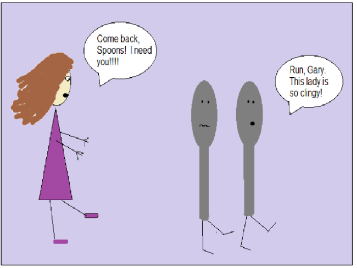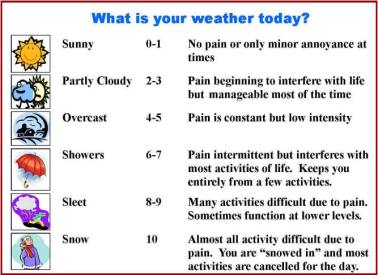What a difference a year makes! 07/14/2012
Posted by thetickthatbitme in Patient Stories, Treatment.Tags: Borrelia, Borrelia hermsii, brain fog, choline, energy, healing, health, IV antibiotics, Lyme Disease, medicine, pain, Relapsing Fever, ticks, treatment
2 comments
A year ago yesterday was when I started my treatment for Borrelia hermsii. I left my home, my boyfriend, and my dog to stay with my parents so I could get treated with 42 days of IV antibiotics. Looking back on this time last year, so much has changed:
1. My knowledge level. I’m embarrassed to say that when I started treatment, I couldn’t even tell you if a tick has eight legs or six. (I never saw the ticks that bit me.) I knew nothing about the habitat or biology of ticks, and I didn’t know how many different diseases they can spread. I didn’t know how to spell Borrelia. Pretty much all I knew was that I was infected with a bacterium that was like Lyme but not Lyme that causes Relapsing Fever. This was strange to me because I never remembered having a fever–cold sweats, yes, but no measurable fever. I’d had IVs in my hand before when I’d been hospitalized, but I didn’t really understand what an infusion was, or that it mattered which vein a needle goes in. I had no idea what PubMed is. I’d read maybe three medical journal articles in my lifetime. Over those six weeks, I learned a lot from my doctor and other patients, and I kept learning through support group meetings and emails. Finally, I got up the energy and courage to launch this blog, and well…you know the rest.
2. My energy level. The fall of 2011 was when I should have realized something was wrong. I was student teaching in the mornings and teaching my regular classes at night. I remember what a struggle it was to get out of bed in the morning. Getting dressed was like running a marathon. I’d had back surgery the previous June, and I was in this hard brace that everyone called my turtle shell. But it wasn’t just my back that was a problem. Even with eight to ten hours sleep, by noon, I was struggling to stay awake. My 30 minute drive home on the freeway was terrifying. The only thing that kept my eyes open most days was if I was constantly chewing something, so I tried to always have snacks with me. When I got home, I’d take a 90 minute nap–which was never enough–and then I’d get up and go to work again. When the semester ended, I thought I would catch up on rest, but even only working part-time, I was constantly fatigued. I spent any time that I wasn’t working in bed. When I had to go on a business trip in March, I freaked out. How would I handle being on someone else’s schedule? How would I go six or seven hours without lying down? By June, I was freed from back braces, and my spine had healed, but I still felt awful. And I felt guilty. How had I become this lazy, unmotivated person who spends all her time in bed? A year later, I have my life back. I work two jobs, plus freelance work. I cook dinner for Boyfriend and me several nights a week, do all the grocery shopping, and keep the house clean. I walk my dog and ride my bike. I go shopping and to the movies with friends, drive long distances, and even occasionally babysit. Before, I only had the energy to do one or two of these things per day. I was a spoonie with a very low spoon limit. If I cleaned the house, that was it for the day. If I went to the store, I probably wouldn’t have the energy to cook the food I’d bought. If I taught a 3 hour class, I would come home and sleep the rest of the day. All of this I tried to conceal from my family and friends. I tried to be fine because there was no explanation for why I wasn’t.
Looking at how much better I am now makes me realize how sick I was. Yesterday, I had a two-hour morning conference call, after which I worked on the computer for another hour. Then I ate lunch and went to the grocery store. When I got back, I cleaned out the fridge, put the groceries away, and then did a thorough de-clutter and clean of the entire house. I read a chapter in my book, took a shower, and went out to dinner with Boyfriend. All that activity would never have fit into one day when I was sick. I was up again this morning at 8:00, feeling rested.
3. My pain level. I was on strong prescription painkillers for a year and a half, starting in June 2010 after my surgery. Clearly, I didn’t get off them when I was supposed to, 6-9 months post-surgery. That’s because I didn’t just have back pain. It was in my hips, neck, and shoulders, too. The pain didn’t completely go away right after treatment. It’s been a slow progression. In the fall, I was able to wean myself off painkillers and just use heating pads when my back or joints bothered me. We know from the research that reactive arthritis may simply be part of the package for some patients with treated Borrelia infections. This is my framework for understanding some of my continuing aches and pains. For me, low-impact exercise, comfortable shoes, heating pads, and a memory foam mattress pad help a great deal. Whereas before my daily pain level rarely dropped below a four, even with drugs, now I’m at a one or a two most days, and I’m drug-free, aside from very rarely taking Advil.
4. My cognitive level. The ability to think, speak, and write clearly is essential to my livelihood. Having a Borrelia infection plunged me into what many people describe as a “brain fog.” For more than a year, I was sort of drifting through life, not able to think very clearly about anything. It came on gradually, and after my surgery, it got worse, which I attributed to the pain and the painkillers. Now I’ve met enough fellow patients that I see the pattern. I understand how this infection clouded my cognition. One of the reasons I didn’t start writing this blog while I was getting treated was that I couldn’t focus well enough. Even post-treatment, it took me a few months to start feeling sharp again. I really noticed the change this past semester when teaching got easier. I was able to learn the names of all my students within the first three weeks–which hadn’t happened the previous four semesters. My focus and mental endurance were so much better, as was my time management during class. I felt sort of like I’d woken up from a long sleep. The time in my life when I was very sick seems blurry. Now, not only do I have the energy to do more, but I have much better concentration. I can even go back and look at things I wrote two years ago and see the difference in sentence structure. All I can say is it’s good to be “back.”
What I’m doing to stay well, one year out:
1. Eating my eggs. You wouldn’t believe how “off” I feel if I go a day without an egg. That’s probably because my neurologically-damaged body likes choline, and eggs are full of it. I also find myself craving green vegetables. In fact, whenever friends ask me where I want to eat, I usually say, “Anywhere with good veggies.” I know there are many diets out there that are designed to help people with Borrelia infections avoid inflammation and other problems, and many of those recommend avoiding meat, dairy, gluten, and sugar. Personally, I’m not really cut out for that. I’m not the kind of person who can say, “I’m not going to eat X” when X is something that I really like, like sourdough bread, or milk, or chocolate. That’s not to knock the vegetarian, dairy-free, gluten-free, and/or sugar-free diets. I recognize that they do work for some people. However, I’m pretty sure that my body needs both meat and sugar to function normally, so I’ve always been opposed to giving up those. Other than being lactose-intolerant, I have no problems with dairy, and I don’t have more pain when I drink my Lactaid milk than on days when I don’t, so I’m not so concerned with the inflammation factor there. I seem to tolerate gluten pretty well, but I do try to limit my grains, as they’re not the best source of choline. No one gets between me and my egg sandwiches, though.
2. Staying active. I spent a large percentage of a year in bed, and going back there is very tempting at times, especially since during that time I developed a large collection of movies and TV shows, and my bed is VERY comfortable. Because I used to do most things from bed, I’m just now getting used to LIVING in my living room, WORKING in the office, and SLEEPING in my bedroom. (In fact, I’m breaking this rule now, typing the first draft of this from bed, but it’s a Saturday, and I’ve been working all week, so I don’t feel bad.) For me, staying active means not only “working out” (by walking the dog, riding my bike, and playing Dance Central on Xbox) but “getting stuff done.” I used to put off doing things and tell myself, “I’ll do it when I’m not so tired, or when I’m in less pain.” Now I don’t have those excuses, and it’s much less burdensome to get things done right away. Procrastination used to be a form of self-preservation. Now it’s a habit I have to work to break.
3. Preventing re-infection. After what I’ve been through, the last thing I want is another tick-borne infection, so I make sure that both my dog and I stay out of high risk areas for ticks. When we walk, we stay on the sidewalk. Boyfriend and I keep the yard clean–which is not too difficult since our backyard is mostly concrete. We treat Lucy monthly for fleas and ticks, and I’m always spraying that Cedarcide. I’ve decided not to do any hiking or camping for a while. When I want to enjoy the outdoors, I ride my bike or go to the beach.
4. Staying current on my tests. I get my blood drawn every 3 months so my doctor can check my antibody titer. My doctor said if I have a four-fold rise, then we’ll need to consider re-treatment. So far, I’ve been okay, but I want to be vigilant. I don’t want to get re-infected and not know about it.
Hope everyone is having a wonderful weekend!



